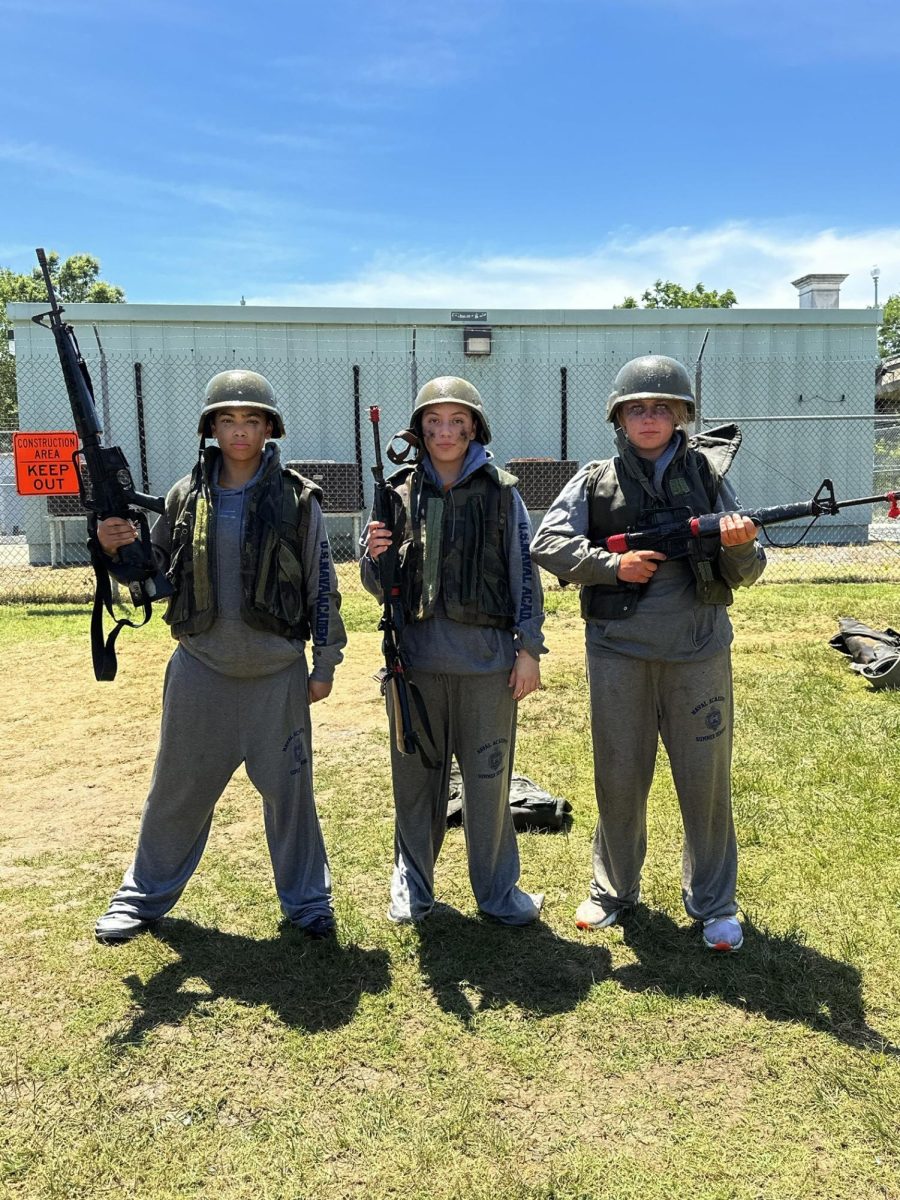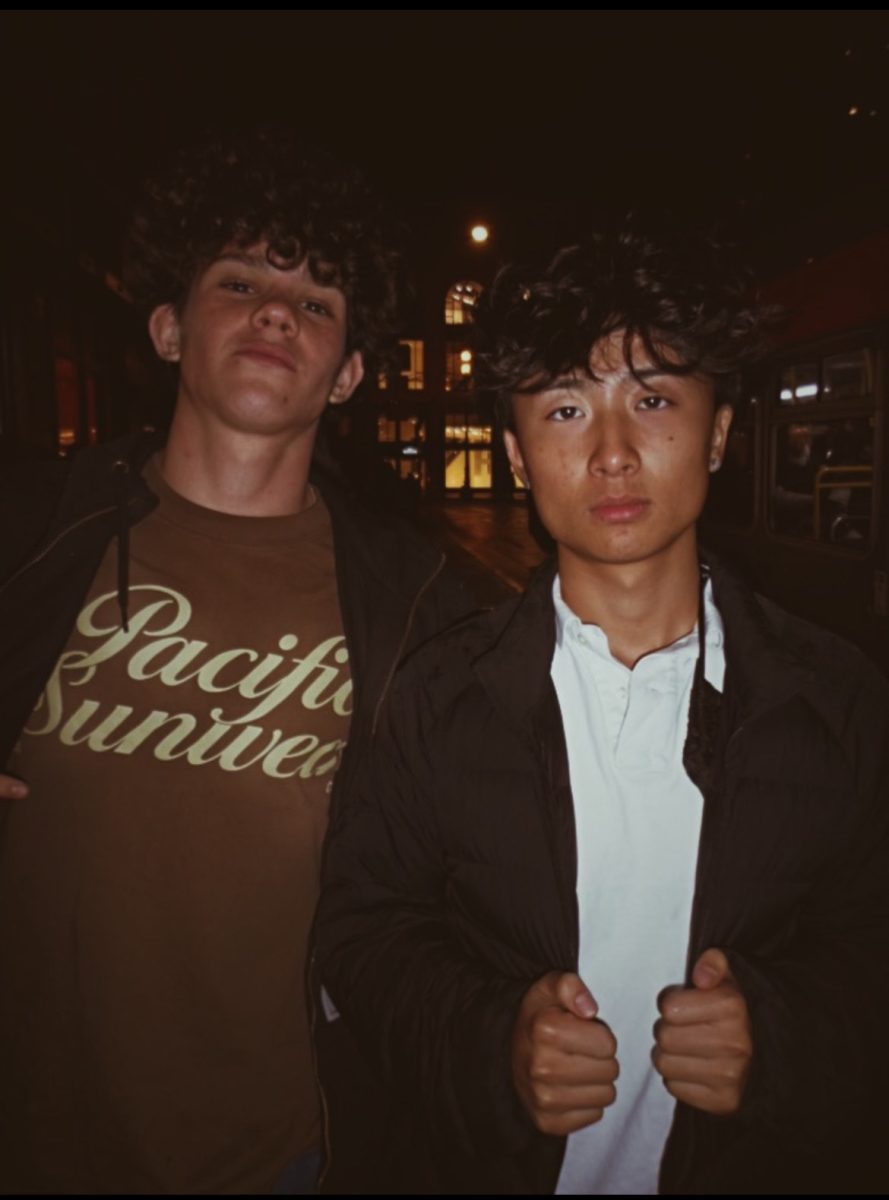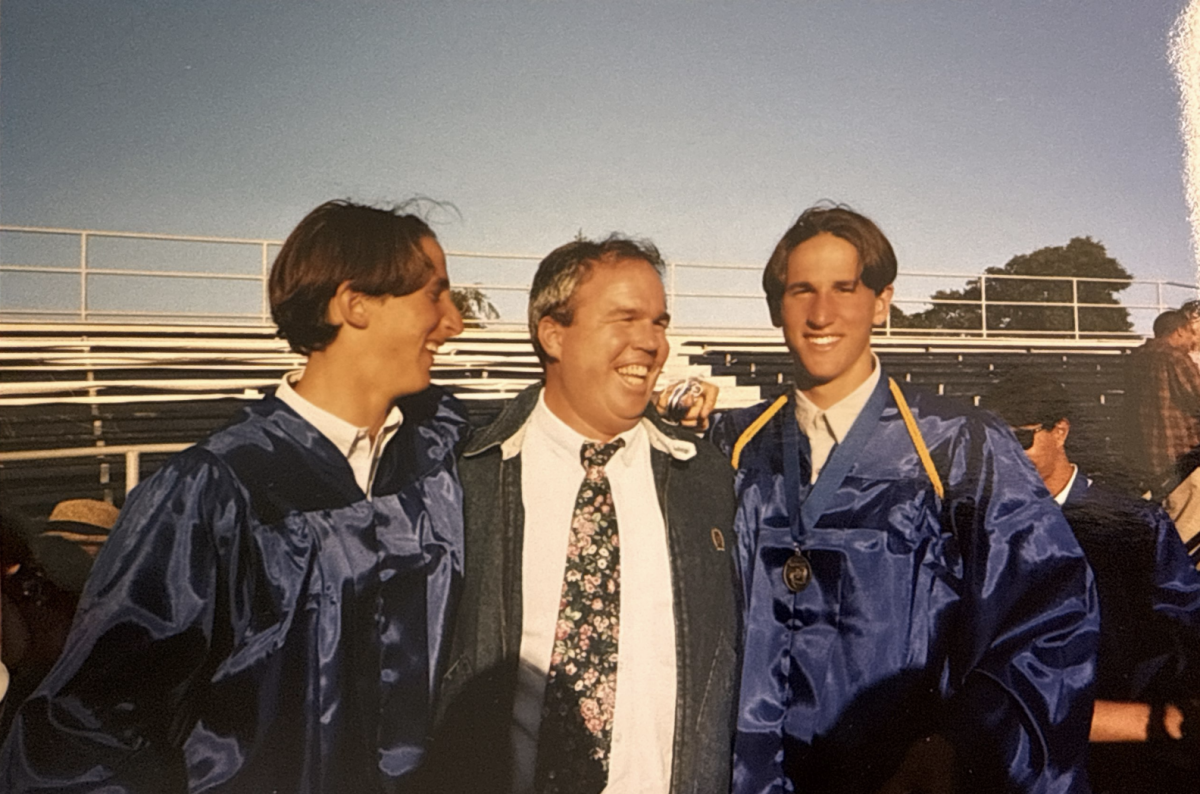It isn’t unheard of for students to attempt to form some sort of small business in high school, but senior Navid Ghomeshi and junior Shahzeb Shunaid have taken it one step further and created an international textile company.
Dunya Brands, named because Dunya means “world” in both Navid’s mother tongue Farsi and Shahzeb’s native Urdu, began in 2012 by making tote bags printed with the company logos of customers.
“There was a ban on plastic bags,” Shahzeb said. “We were at [a] store, and we were like, ‘Everybody’s saying that [plastic] bags are going to be stopped, so what’s the next big thing which is going to come in place of that?’”
They had already been thinking about starting a company together, as they were friends who shared an interest in entrepreneurship and humanitarianism. Once they realized there might soon be a big demand for tote bags, Navid and Shahzeb decided to produce and sell them. They have family members involved in law and business, so they began talking to them, trying to figure out how to start a company.
While Shahzeb dealt with facilities and manufacturing, Navid was responsible for the marketing aspect of Dunya Brands, registering the company in the cities of Los Altos, Mountain View and San Jose and finding their first customers. He first thought that potential customers might find his age a problem, but he said he never lost a business deal because of this.
“At the end of the day, they’re not doing business with me, they’re doing business with Dunya Brands,” Navid said. “I say, ‘This is the T-shirt you’re going to be receiving, and this is the price you’re getting it at. What difference does it make how old I am?’”
Nevertheless, because of the amount of work involved in the process of setting up the company, Dunya didn’t get its first customer until six months after the pair had begun serious work towards finding facilities and clients. Their first customer was a nonprofit organization, Developments in Literacy, which builds schools for girls in the Middle East.
The company’s first shipment didn’t go well. Because of recent hostilities between the U.S. and Pakistan, it wasn’t easy to send items in bulk through the mail. When the box with the 350 tote bags Developments in Literacy had ordered arrived, the box had been opened by Customs, and about 15 of the bags had been ripped in the process.
“Our client wants 350 bags, and we have 336,” Navid said. “It was a pretty intense experience, because we’re trying to convince people to work with us, and our first deal we’re 14 short.”
The nonprofit was refunded for the bags that had been ripped, but it turned out not to be a problem as not all of the bags were used. However, it was a valuable learning experience. Now the pair are careful to ship about 30 extra bags each time, so that they have the right amount to present to customers in case any issues arise and can avoid embarrassing situations.
While researching the textile industry, the pair discovered that it isn’t uncommon for textile companies to use child labor in countries such as Haiti. Because of this, an important factor Shahzeb considered when finding facilities was the labor the company would use in the factories.
Shahzeb lived in Pakistan until he was 15, and he realized that the country had a lot of unemployed people whom he and Navid could help. He decided to hire workers from rural areas in the province of Sindh in southern Pakistan.
“Human rights is something we both really feel strongly [about],” Shahzeb said. “We wanted to give underprivileged people sort of an opportunity. We’re helping them by getting jobs [for] the rural [workers]. We tell our manufacturer we want these many people from this area… to give them employment.”
Navid and Shahzeb are careful to make sure that their company factories includes no child labor and has fair conditions for workers. Most of the work in their factories are automated, and very little manual labor is involved in their manufacturing. They also personally know the factory managers.
“We have visited our factories… we know it’s not harsh circumstances,” Navid said. “In fact many of the workers are close friends.”
Both of them are also clear that their goal with Dunya Brands is not about making a profit.When they sell products to nonprofits, 10 percent of the profits are donated to the nonprofit’s cause.
“We really believe in making our business… and at the same time helping people there,” Shahzeb said.
They have donated to various causes, from a nonprofit called Open that supports up-and-coming entrepreneurs to another called Syrian Help and Refuge which raises awareness for the war in Syria.
In addition, most of the money that they do make goes straight back to the factories in Pakistan, to ensure that Dunya Brands workers have higher wages than the average factory worker. They both hope that their business will help change lives in Pakistan.
“That’s something I really believe in,” Shahzeb said. “And not only helping people where I come from, but helping people everywhere.”
Overall the company has been a success. Navid and Shahzeb have made several dozen deals, helped many people gain jobs and learned how to run a business firsthand. Both are sure that they want to pursue business as a career.
“This business has made me realize that this is really what I want to pursue in my future,” Navid said. “Prior to my junior year, I was really into math and science and I thought I’d become an engineer. Now I’ve realized that business is what I like to do.”








